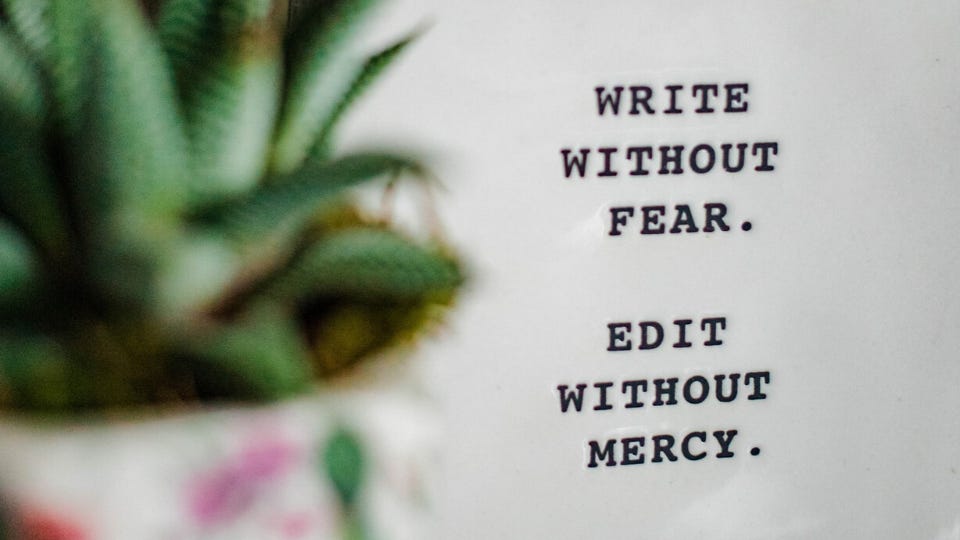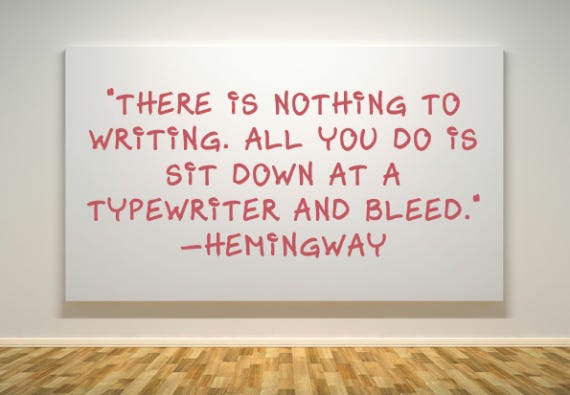What makes a beautiful piece of writing? The saying, “Beauty is in the eye of the beholder” may come into play here. Those of us who love reading various forms of creative writing have our own idea of what makes a piece of writing great. I am not a writing professor by any means, but I get asked fairly regularly to help budding writers get started. I have said often that I believe that everyone has a writer deep down inside and they just might not know how to transfer their expressions to paper or see the value in doing so. I love helping people learn how to free that writer that wants to emerge and show them the value of putting their thoughts in written form. I always feel so honored when someone asks me to read something they have written and give them my thoughts. I thought I’d share a couple of hints that I use and hopefully some encouragement to those who would love to give writing a try or have but don’t know how to take it to the next level.
Photo credit: masterclass.com
I hesitate to put the negative first, but probably the biggest mistake I see new writers make is rushing the process. They get an idea, throw down some thoughts and think they are done. It’s a very, very rare occasion that a piece of writing comes to me all at once in entirety and I’m happy with the way it stands. The first and most important step is to let a piece of writing REST. Poems or essays usually come to me in stages. Inspiration may strike at any time and it helps to jot some notes to return to. Sometimes I get right back to those original thoughts but often it’s a day or two before I even read them again. There are times when I’m haunted by those ideas until I sit down and let the creativity flow. Often I will expand or add one piece at a time. More resting. As a poem or essay comes together and my head tells me it’s done, I let it rest again. That gives me a chance to come back to it with a fresh eye and see how it feels. Does it resonate? Would a reader be able to feel something? Does it creatively express the heart behind the idea? Does the intended meaning rise to the top?
The second step to most of my writing is to READ, read and reread. That leads to asking questions about the theme, focus, expression. Does it translate? Does it convey what my mind and heart told me I needed to communicate? What are the piece’s strengths and weaknesses? Can you hear some sort of rhythm or movement? Is it something that’s better kept just for me, or is it worthy of sharing? Reading your work over and over will reveal the places that could be better or don’t flow quite right.
The last step is to REFINE and this is where I feel most writers could spend more time. Refining is how you can take a piece of writing from good to great. Often there are phrasing, rhyming, alliteration, rearranging, downsizing that could make the piece more interesting. Decisions should be made about active voice, passive voice or point of view. Eliminating unnecessary words can sharpen the focus. It’s good to limit “to be” verbs and “ing” words. This is also where grammatical correction comes into play as well as use of punctuation. Poems lend themselves to not necessarily being grammatically correct, but certain phrasing or punctuation can help add drama or pause that makes the writing more dynamic. I also lean into synonyms and metaphors to make the wording come to life. For example, I recently wrote a poem having to do with the quiet that comes in a blanket of snow. I needed several descriptors that were more impactful than the word “quiet”. Refining allows for finding wording that brings the piece to life.
Photo credit: Asavari Sharma
Most importantly, have fun! Writing creatively should bring you joy and not be a chore. Sometimes it’s work to get your poem or essay “just right” but once you do, there’s a sense of satisfaction like no other! Maybe one day I will try hosting some small online workshops for new writers. I have a teacher’s heart and love helping people get more comfortable with their writing. In the meantime, just for fun, here’s a silly poem I wrote about writing a poem.
Inspiration starts to stir, Close your eyes and open your heart. Expand ideas and play with words Find a quiet place to start.
Express your thoughts then let them rest When you return what do you feel? Is there more to say or is it done? Will refinement make it more real?
Read back your words. Say them aloud. Does it say what you wanted to convey? Read one more time and hear yourself. What could be better and what should stay?
Take a chance and trust your heart, This may be one to share. But take your time and let it speak first to YOUR soul then to theirs.




Thank you for your tips. That is very helpful. I have no talent whatsoever in writing. I never know what to write ✍️ I will give it another try in the future!!
Thank you for your words to encourage others to write. I have been feeling that I would like to write something but don't know what. Maybe another poem = haven't felt inspired to do that for a while so maybe now is the time to try to do so. Thank you that between you and Graham I am inspired to write.